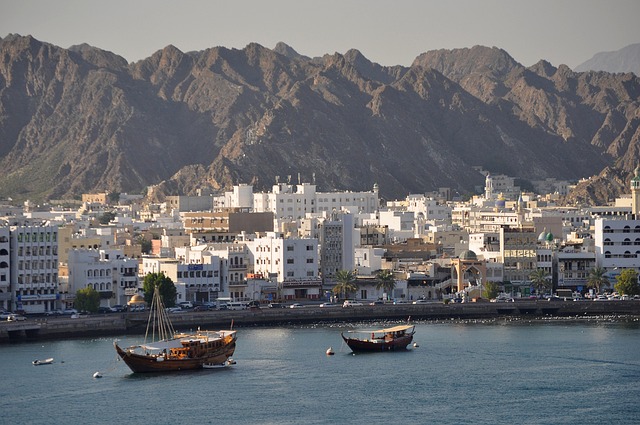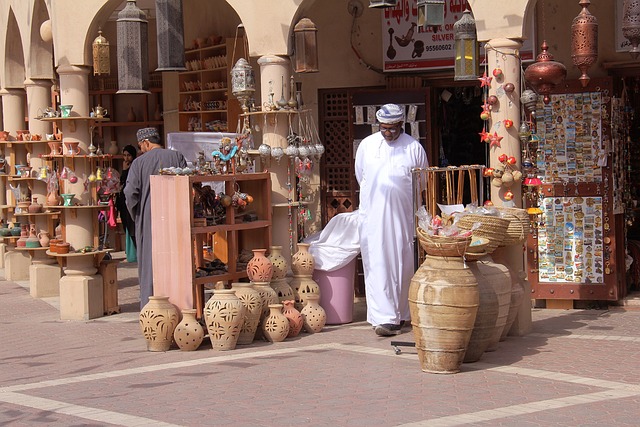
MUSCAT, Oman – Just outside Oman’s capital, Muscat, the ambitious Sultan Haitham City development is taking shape. A 30-minute drive from Muscat International Airport reveals a landscape transforming from asphalt to red desert sand, dotted with rocks, where steel structures now rise amidst the dust. This dramatic shift marks a new future for Oman, often called the "blessed land of God" for its stunning natural beauty and warm-hearted people. Khalfan bin Said Al Shuaili, Oman's Minister of Housing and Urban Planning, remarked, "The world is just beginning to notice Oman, which is quietly but surely rising. We will create world-class smart cities to improve the quality of life for our citizens and diversify our industrial structure away from oil and gas." WEEKLY BIZ visited Oman to witness this period of profound transformation.
Beyond Oil: A Nation Forges a New Path
"Oman once lacked basic infrastructure and its allure as a tourist destination was limited. It's incredible how much this once dusty nation has changed," said Saeed Al-Rawami, a Muscat resident, reflecting on the past. Oman has seen remarkable development over the last five decades. The discovery of oil in 1962 was a turning point. In 1967, when the first oil exports began, the per capita GDP was merely $175. Today, it stands around $20,000. The population, which was a mere 610,000, has surged to over 5.16 million by 2024.
However, recognizing that prosperity built on oil cannot last indefinitely, Oman is charting a new course. The goal is to transition from being merely an "oil country" to a country that "also has oil." This vision is encapsulated in "Vision 2040," a national long-term strategy launched in 2021. The plan aims to foster non-oil sectors like urban development, tourism, logistics, and healthcare through private sector leadership, reducing the oil and gas sector's contribution to GDP from 40% to approximately 20%. This diversification is critical for long-term economic stability and sustainability, given global energy transitions and price volatility.

Real Estate and Tourism at the Core
From May 19-21, Muscat hosted the "Real Estate Conference" organized by the Omani Ministry of Housing and Urban Planning. Amidst local Omanis in traditional 'thob' (men's robe) and 'abaya' (women's dress), numerous foreign attendees were noticeable. "This event is celebrating its 20th anniversary this year, but the atmosphere feels distinctly different with a significant increase in foreign participants," noted Muscat citizen Nasser Al-Jabri. Indeed, representatives from global firms in the UK, Germany, Turkey, Singapore, China, and India, all involved in 'Vision 2040,' participated as speakers, directly showcasing Oman's transformation to an international audience.
The Omani government plans to develop strategic smart cities, including Sultan Haitham City, across an area five times the size of Yeouido (Seoul's financial district) by 2045, with tourism as a key future growth engine. Sultan Haitham City alone has attracted major international firms, including US architectural giant Skidmore, Owings & Merrill (SOM), Austria's Starbuck, and Singapore's Meinhardt, which have signed investment contracts and commenced operations. The Ministry of Housing and Urban Planning aims to elevate the tourism sector's contribution to GDP from a mere 2-3% to 10% by 2040. This ambitious target reflects a strategic shift towards leveraging Oman's untapped potential as a premium tourist destination.
Furthermore, the Omani government is committed to developing eco-friendly tourism complexes that harmonize with nature to attract foreign visitors. With 80% of its land comprising mountains and desert, Oman plans to develop high-altitude cities in areas like Jebel Shams and Jebel Akhdar, both reaching nearly 3,000 meters above sea level, without carving into the natural landscape. Minister Al Shuaili stated, "Oman will become a sought-after country for foreigners by protecting its natural landscapes and ecosystems while developing world-class resorts." This commitment to sustainable tourism distinguishes Oman from some of its regional peers, appealing to a growing segment of environmentally conscious travelers. The focus is on high-value, low-impact tourism that preserves the nation's unique heritage and environment.
Deregulation and Foreign Investment Drive Growth
Oman's accelerated regulatory reforms are leading foreign businesses to view the nation as a new "land of opportunity" in the Middle East. As part of 'Vision 2040,' foreign companies can now directly own real estate in designated free trade zones and special economic zones, opening significant investment avenues. This policy shift is a major draw for international capital. For instance, Talaat Moustafa Group, Egypt's largest real estate developer, recently formalized its entry into Oman by signing an investment agreement worth approximately 6 trillion Korean Won (around $4.5 billion USD).
The influx of foreign capital is evident in the figures. Over the past five years, Oman's Foreign Direct Investment (FDI) has increased by approximately 17%. CEOworld, a US economic magazine, ranked Oman 21st among the "Best Countries for Foreign Investment in 2024," surpassing Vietnam (26th), South Korea (31st), and Japan (35th). Oman has long pursued an open-door policy, signing a Free Trade Agreement (FTA) with the United States in 2006 to lower tariff barriers and revamping its legal framework to protect foreign businesses. In 2018, it established a commercial arbitration center and simplified various licensing procedures to promote private-sector-led growth. An official from Diamond Developers, a Dubai-based real estate company, stated, "Oman is emerging as a remarkable investment destination, not just within the Middle East but on the global stage." These reforms signal a clear commitment to fostering a business-friendly environment, essential for attracting the sustained foreign investment needed to achieve 'Vision 2040's ambitious goals.
[Copyright (c) Global Economic Times. All Rights Reserved.]






























